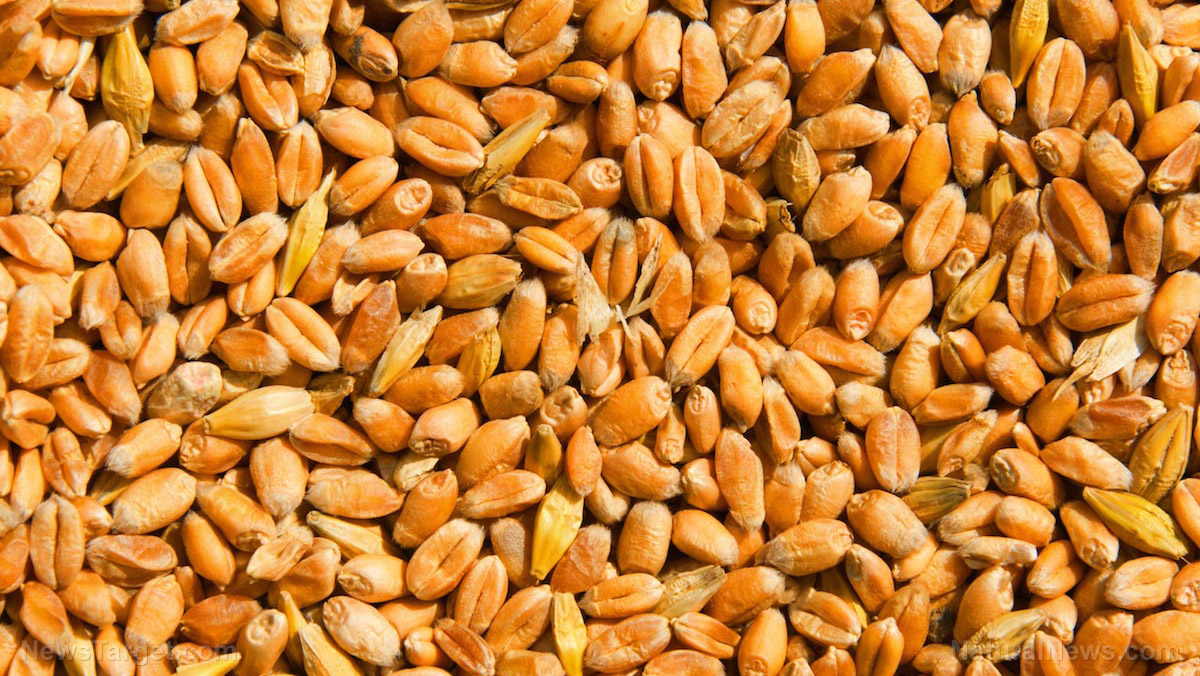
Cancer patients take fermented wheat germ extract (FWGE) as a dietary supplement to help with their treatment. The extract has demonstrated potential as an anti-carcinogenic that complements standard therapy.
The supplement contains two anti-tumor compounds: 2,6-dimethoxy-1,4-benzoquinone (DMBQ) and 2-methoxy-benzoquinone. Both are quinones, organic compounds that served as the basis for clinical anti-cancer compounds.
Benzoquinones suppress cancer cells by forming intracellular reactive oxygen species. The oxidative stress caused by these free radicals inflict irreparable damage on tumorous cells.
Furthermore, FWGE affected the process by which cancer cells metabolize glucose. This anti-metabolic activity is a separate one from its cytotoxic activity. (Related: Agarwood essential oil demonstrates promising anti-cancer properties, researchers find.)
Testing the anti-metabolic and anti-cancer properties of FWGE
Researchers from the University Hospital of Würzburg (UHW) set up an experiment involving FWGE with two goals in mind. First, they wanted to shed light on the anti-metabolic activity of the extract by determining whether or not DMQB was responsible for the metabolism-suppressing property of the supplement.
Second, they wanted to compare the anti-cancer properties of FWGE and DMBQ when administered to nine different human cancer cell lines in equivalent concentrations.
They prepared nine different lines of human malignant cells. Three lines were breast adenocarcinoma, two were adenocarcinoma from the pancreas and the colon, one line came from the stomach, and the last was an invasive breast ductal carcinoma. These cultures were treated with either fermented wheat germ extract or a corresponding amount of anti-cancer compound DMBQ.
The researchers measured the anti-proliferative effects of both FWGE and DMBQ on the growth of cancer cells. They determined if each substance exerted cytotoxic, cytostatic, and growth delay effects.
They also measured the cellular adenosine triphosphate (ATP) content, cellular redox state, glucose consumption, lactic acid production, and cell-division cycle.
FWGE has anti-proliferative effects on cancer cells
The UHW researchers reported that an average IC50 value of 10 milligrams per milliliters (mg/mL) of FWGE was able to exert anti-proliferative effects on the cancer cell lines. The effectiveness depended on the dosage and the line.
The extract was especially effective in adenocarcinoma from pancreatic cancer and breast cancer. It was least effective on the MCF-7 line, which was unresponsive invasive breast ductal carcinoma.
At IC50 values of less than 6 mg/mL, the extract usually exhibited cytotoxic effects. When the amount of fermented wheat germ extract exceeded that, it also caused cytostatic effects. Finally, it caused a growth delay effect in HRT-18 colon cancer cells.
When administered in equal concentrations as the extract, DMBQ displayed a strong cytotoxic effect on the cancer lines. However, the anti-cancer compound did not display cytostatic or growth delay effects on tested cultures.
Examination of the cytostatic and growth delay effects exerted by FWGE revealed that the extract affects the metabolism and function of cells. It stops the cell cycle and appears to be linked to impaired metabolization of glucose, as well as reduced levels of lactic acid.
The HRT-18 cancer cells were able to continue producing lactic acid despite having far less glucose to metabolize. The UHW researchers found that these cancer cells were undergoing autophagy, a survival mechanism where a starving cell breaks down parts of itself and turns it into energy.
They summarized their findings by confirming that fermented wheat germ extract demonstrated anti-proliferative activity against cancer cells. The extract possesses cytostatic and growth delay effects on tumorous cells in addition to its cytotoxic effects, and the ability to disrupt the metabolism of cancer cells and induce autophagy made it more effective.
For more stories on the best natural health supplements, visit SupplementsReport.com.
Sources include:
BMCComplementAlternMed.BioMedCentral.com
Please contact us for more information.























